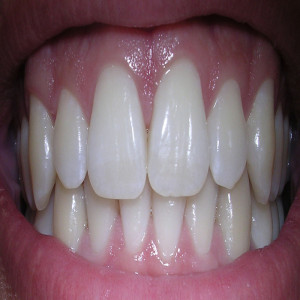Gum Disease Treatment
 What causes Gum Disease?
What causes Gum Disease?
Our mouths are full of bacteria, food particles and mucus which allows a build up of plaque to form on the surface of our teeth. Brushing and flossing helps remove this plaque and helps keep our teeth and gums healthy. If brushing and flossing is neglected it will lead to a build up of tartar on our teeth. Tartar is a hardened form of plaque and bacteria which can only be removed by your dental professional.
Always consult your dentist if you notice any early signs of gum disease.
Signs of Gum Disease:
- Puffy red or swollen gums
- Bad breath that is hard to get rid of.
- A metallic taste in your mouth.
- Gums bleed when you brush or floss.
- Sensitive teeth.
Gum Disease Treatment
Gum disease can occur at any age. The good news is that if brought to your dental specialists attention, many of these early symptoms are reversible. Although early signs of gum disease are hard to detect, your dental specialist looks for these every time you go for your scheduled checkup.
Diseased gums require immediate care, starting from improving your oral hygiene through brushing, flossing and using anti-septic mouth washes. When your gums are swollen, chances are that they have been allowed enough time to be irritated by bacteria and accumulated food particles and debris, such as hardened calculus and tartar.
In the presence of tartar and calculus, gums are in a constant unhealthy state and removal of these deposits is essential to restore their health. Your dentist will use ultrasonic scaling to remove the calculus and tartar from over and under your gums, allowing them to recover from the irritation. Anti-septic gels may be prescribed to be applied to the gums for a week or two, along with medicated mouthwash and warm saline rinses. Anti-biotics may be prescribed as well, depending upon the severity of the inflammation in the gums.
Diseased gums may not necessarily mean bad oral hygiene. There may also be unexplained ulcers or sloughing of the thin tissues over the gums, indicating the presence of an underlying cause such as stress, dehydration, or even a medical condition manifesting itself within the mouth. Examination of your mouth by your dentist is either way imperative to prevent and treat any gum disease, maintaining the health of your oral cavity.





